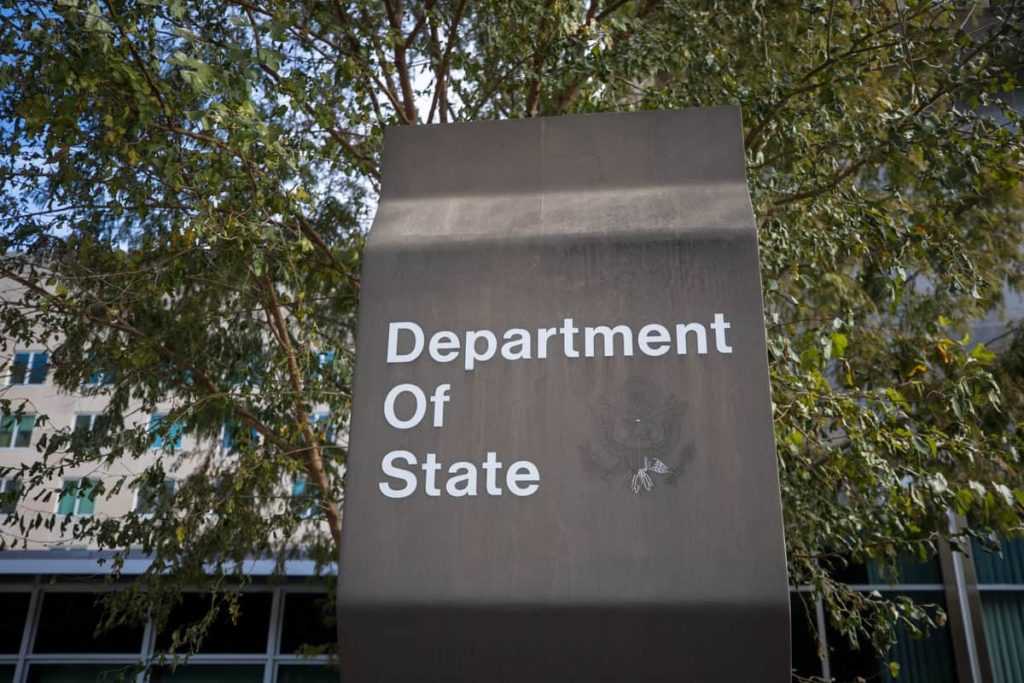Terrorism report highlights where State Department HAS and HAS NOT conformed to Trump’s national security strategy
Despite some improvements, the State Department’s 2020 “Country Reports on Terrorism” document continues to reflect failed Obama-era policy-thinking and fails to conform to the President’s National Security Strategy.

Despite some improvements, the State Department’s 2020 “Country Reports on Terrorism” document continues to reflect failed Obama-era policy-thinking and fails to conform to the President’s National Security Strategy.
The Department of State is required by law to publish an annual report on foreign countries that meet a series of criteria related to terrorism, ranging from those which have worked with the U.S. to counter it to those whose territories have been used as sanctuaries for it. The most recent report for the year 2019 was released June 24th, 2020. While it contains evidence good progress made by the State Department under the Trump Administration on some key issues, there are also a number of indicators that the bureaucracy continues to hold tightly to flawed Obama Administration-era beliefs and assessments.
On the positive side of the column, the report pulls no punches about the dangers of Iran and demonstrates a clear reversal of the previous Obama Administration which sought to downplay Iran’s terror ties in support of efforts to achieve a deeply flawed “Iran nuclear deal” from which the Trump administration later withdrew. Among the report’s key notes on Iran regarded terrorism financing, including more than $700 million transferred to groups like Hezbollah and Hamas.
Another positive highlight from the report is the State Department’s demonstrated realism about Pakistan’s lackluster assistance in counterterrorism efforts. The report noted that Pakistan still serves as a safe haven for terrorist groups and has not fulfilled its pledge to dismantle terrorist organizations. Only a day after this report was published, Pakistani Prime Minister Imran Khan, in a speech to parliament, expressed disappointment about al Qaeda terrorist mastermind Osama bin Laden having been “martyred” by the U.S – only reinforcing the report’s findings.
Yet in major areas the report continues to represent the flawed views of the previous administration. In particular, the State Department fails to demonstrate recognition of the overarching ideology driving jihadist terrorism. The State Department report mentions Sharia (Islamic Law) more than thirty times, but primarily only in the naming of terrorist organizations. In rare cases it notes that “severe interpretations” may promote violence. This is a departure from the Trump Administration’s national security strategy which identifies the desire to impose Islamic law as the driver of jihadist terrorism.
The failure to adequately address jihadist motivations creates additional problems in the report’s analysis, notably regarding Nigeria and Sudan.
In its report on Nigeria, the State Department could not avoid listing numerous examples of terrorist attacks in the country and the staggering numbers of displaced Nigerian refugees resulting from this violence. But the report did not address that attacks are perpetrated almost exclusively by jihadis against Christians and at a genocidal rate. Despite repeated calls for the State Department to create a Special Envoy to confront this genocide, it has failed to do so.
In its report on Sudan, the State Department asserts that “Sudan has taken steps to work with the United States on counterterrorism,” and that the Sudanese “…Minister of Religious Affairs and Endowments…emphasized that his ministry would work on combating extremism, fighting terrorism and renewing school curricula to promote tolerance.” This take continues to reflect the Kerry/Clinton State Department willingness to overlook media reports on the genocidal killing of Christians, and prioritizes “combating extremism” and “promoting tolerance” over effective counterterrorism efforts.
The State Department carefully avoids naming the Muslim Brotherhood as a key contributor to global terrorist activity. In fact, the term “Muslim Brotherhood” appears in the document only twice: once in a definition of HAMAS, and once in relation to its symbology being criminalized by law in Austria.
The failure to address the threat of the Muslim Brotherhood puts the U.S. out of step with traditional Mideast regional U.S. Allies such as Egypt. The State Department’s lack of understanding of the nexus between Sharia, The Muslim Brotherhood, and terrorism reflects its continued adherence to Obama-era “Countering Violent Extremism” policies.
Another flaw in the State Department’s report is its consistent parroting of the Obama-era narrative that white supremacism is a growing and preeminent threat while consistently ignoring or suppressing information about other threats. For example, the report stated that “The threat posed by racially or ethnically motivated terrorism (REMT), particularly white supremacist terrorism, remained a serious challenge for the global community.” But it fails to note any overarching connection between Jihadist or Marxist/ Maoist threats, mentioning these challenges only in relation to specific groups which have been designated as Foreign Terrorist Organizations.
The State Department’s bureaucratic reluctance to address the President’s stated priorities underscores why the Trump Administration should take executive action on key priorities. Notably, the President should make good on his campaign promise to create a Commission on Radical Islam, should declassify Obama’s Presidential Study Directive-11 strategy to support the Muslim Brotherhood, and should act on earlier calls to designate the Muslim Brotherhood and Antifa as Foreign Terrorist Organizations in the same way the administration acted to designate the Iranian Islamic Revolutionary Guard Corps.
Without taking further executive action to clearly demonstrate administration priorities,
the State Department and Intelligence Community is likely to continue to muddle along observing the pieties and strategic assumptions of the previous administration, rather than adapting the President’s efforts to Make America Safe Again.
- Center for Security Policy Testifies Before Texas Legislature on protecting Grid from Electromagnetic Threats - April 8, 2025
- The Vulnerable Grid: Protecting and Rebuilding America’s Energy Infrastructure - February 13, 2025
- Is America’s Power Grid at Risk? Lt. Col. Tommy Waller USMC (Ret.) Exposes the Threats - February 5, 2025
